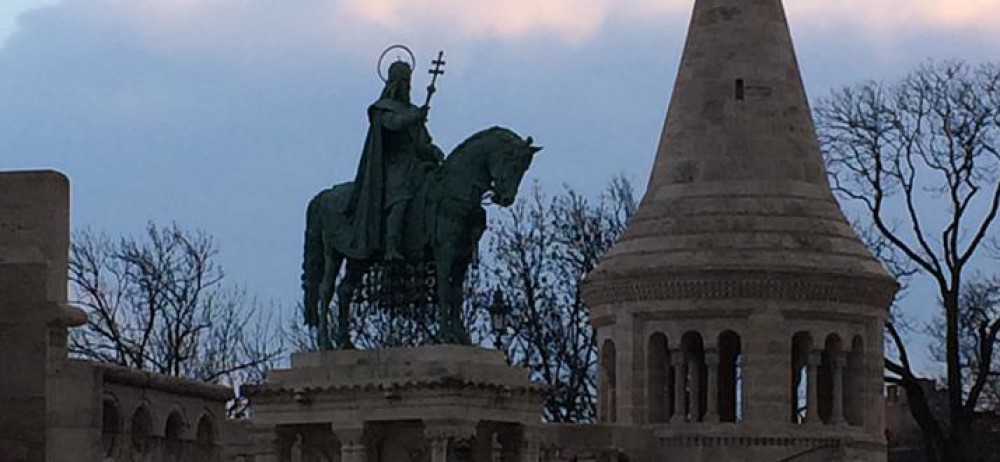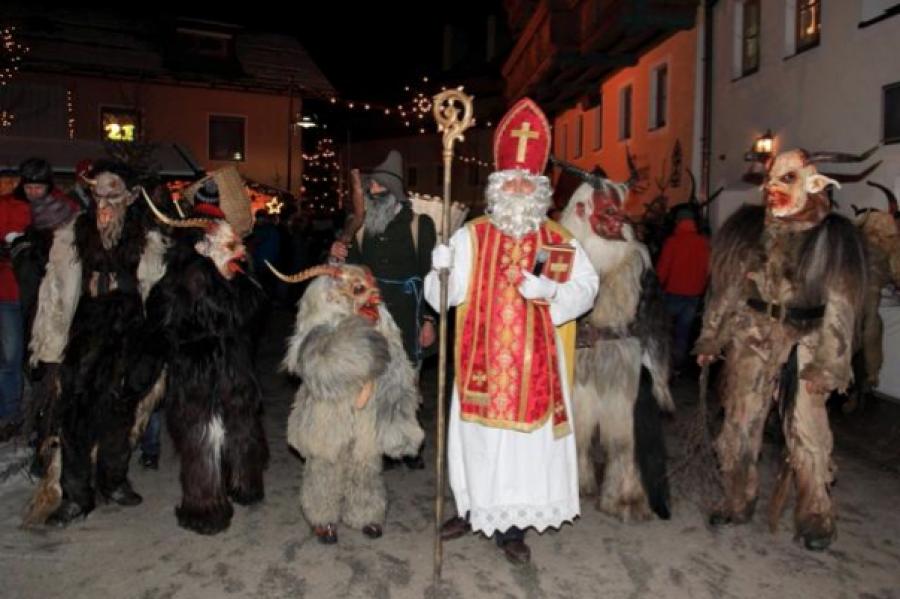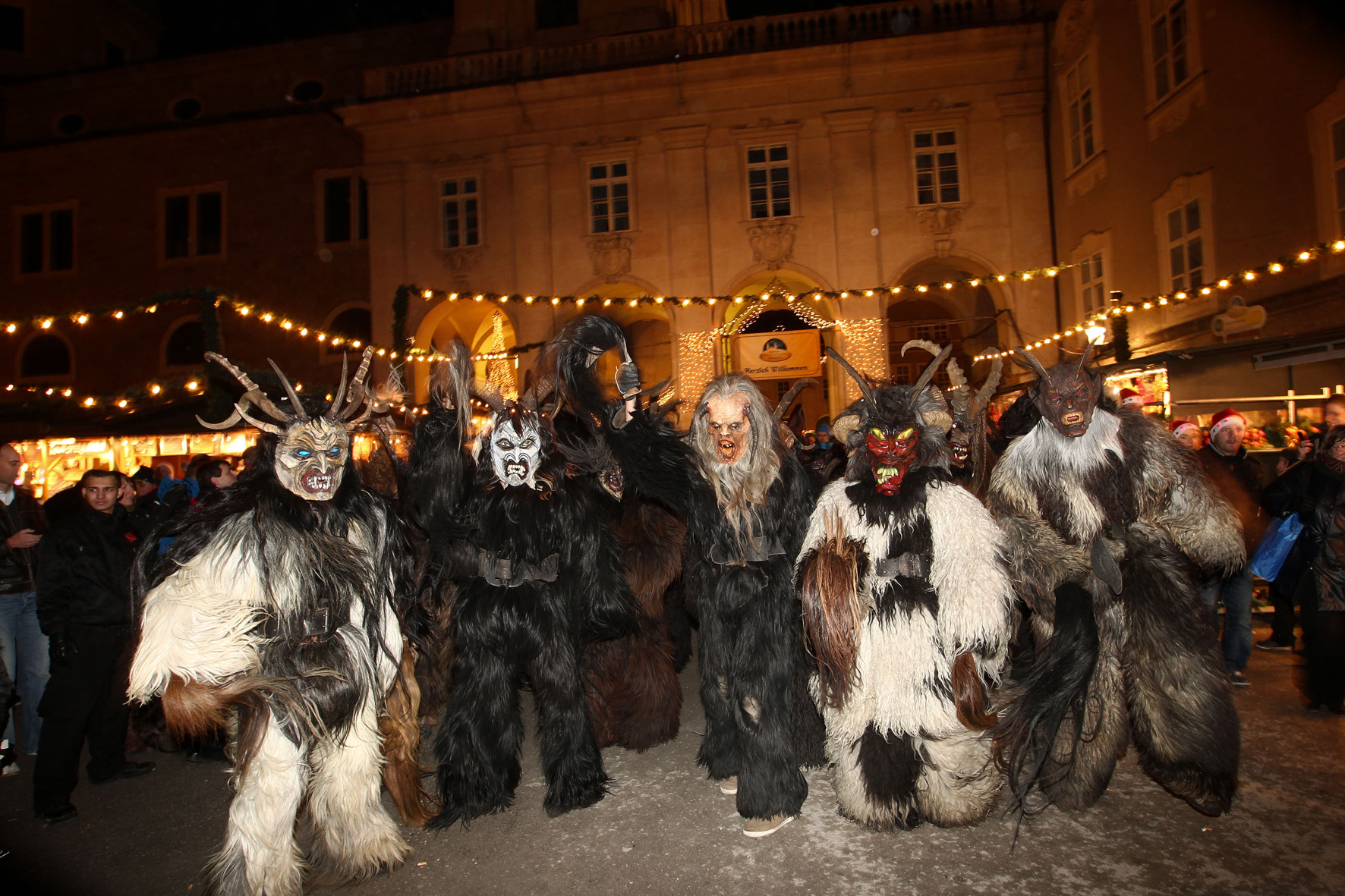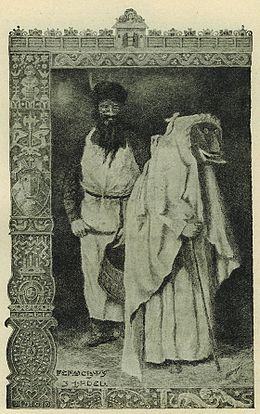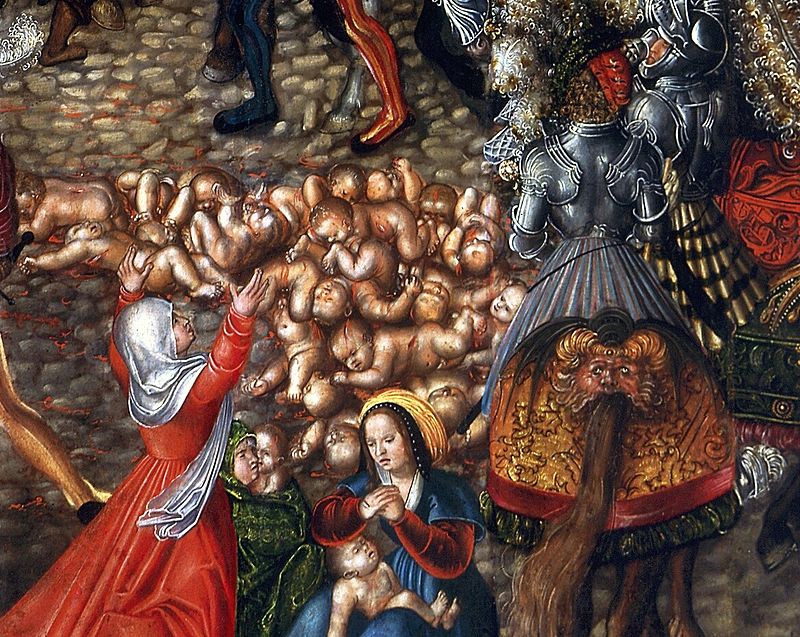
The Massacre of the Innocents (detail) by Lucas Cranach the Elder (c. 1515), National Museum in Warsaw.
Also known as Innocents’ Day or Childermas, this day commemorates the massacre of all the male children two years and under in Bethlehem as ordered by King Herod, who hoped that the infant Jesus would be among them. Not surprisingly, this day has long been regarded as unlucky—particularly for getting married or undertaking any important task. Edward IV of England went so far as to change the day of his coronation when he realized it would fall on December 28. Most modern folk recognize the account of the slaying of the children from the popular Coventry Carol.
In ancient times, the “Massacre of the Innocents” was reenacted by whipping the younger members of a family. But over the years the tables turned, and in some countries it has become a day when children play pranks on their elders. In Mexico, Childermas is the equivalent of April Fool’s Day. In some areas of western Europe, the day of the week on which Holy Innocents’ fell was considered a holiday in each following week of the year until the next celebration of the feast. Or, in some places, that weekday was considered unlucky and ill-omened in each week until the next Holy Innocents’ Day.
The Greek liturgy asserts that Herod killed 14,000 boys, the Syrians speak of 64,000, many medieval authors of 144,000 (the number of the young men in white described in Revelation 14:3). Modern writers reduce the number considerably, since Bethlehem was a rather small town. Modern scholars now consider the number of children killed to have been more likely fifteen or twenty. This cruel deed of Herod is not mentioned by the Jewish historian Flavius Josephus, although he relates quite a number of atrocities committed by the king during the last years of his reign. The number of these children was so small that this crime appeared insignificant amongst the other misdeeds of Herod. One ancient historian relates that when Augustus heard that amongst the boys of two years and under Herod’s own son also had been massacred, he said: “It is better to be Herod’s hog [ous], than his son [houios],” alluding to the Jewish law of not eating, and consequently not killing, swine.
